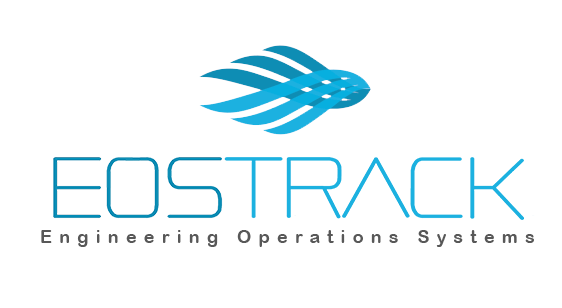FTI FORMING SUITE
Smart costing and early feasibility solutions for the sheet metal industry
OVERVIEW
FTI is the industry standard technology for Cost Engineering, Material Utilization, Process Planning, Design for Manufacturability (Evaluate BIW and Class A Panels Formability and Quality) and Stamping Simulation for Sheet Metal Components.
Within the powerful Forming Suite environment FTI provides the following software solutions:
• COSTOPTIMIZER® Professional for cost engineering,
• COSTOPTIMIZER® Advanced for early feasibility, and
• FormingSuite® Professional for robust stamping simulation for sheet metal components (Virtual Manufacturing).
FORMING SUITE - CAPABILITIES
• Intelligently and automatically address the material cost improvement areas for management and engineers to work as a team, to improve material utilizations and reduce material spend
• Identifies product design changes that improve quality, material utilization, and reduce weight and costs for optimal material usage
• Scientific physics-based approach identifies formability issues at product design stage reducing ECOs
• Accurately identifies splits and wrinkles using Forming Limit Diagram (FLD), Safety Zone in addition to Thickness Strain, Major/ Minor Strain, etc.
• Calculates Springback to predict issues for tooling and provide information for Tolerance Negotiation and provides compensation data
• Establishes target cost for piece price and tooling with a detailed process plan for quoting
• Calculates press requirements such as tonnage, bed size, shut height, energy, and selects appropriate press
• Powerful stamping analysis package for blank development, process design validation, and virtual prove-out using both incremental and coupled hybrid inverse stamping simulation
BENEFITS
• Provide a holistic enterprise solution automatically to intelligently identify areas for improvement and optimization strategies for sheet metal costing at the whole vehicle level
• Addressing Design for Manufacturing issues early in the design phase to reduce engineering changes resulted from formability issues downstream, and reduce the overall time to market
• Perform accurate quotations in less than half the time using “FTI Technologies” enabling a cost engineer to perform over 2000 quotes per year
• Reports for customer technical review can be produced simultaneously with the quote to include blank layouts, feasibility simulations, and tool process description with pictorial layouts and cost breakdowns for Tool Value Analysis
• Instantaneous feedback for equipment requirements including press tonnage and bed sizes so early capacity planning can be carried out to establish maximized equipment utilization of current and new requirements well ahead of time.
• Consistent and repeatable method for estimating tooling costs with detailed reports that connect to any system
• Seamlessly integrated tools provide simulation and validation of the entire process from quoting to tooling design to virtual prove-out with speed and efficiency in a simple and intuitive user interface.
APPLICATION MODULES
COSTOPTIMIZER® Advanced
Formability risk assessment, material utilization cost estimation
COSTOPTIMIZER® ADVANCED is used by cost engineers and product engineers to performs formability risk assessment, develop precise blank shapes, manage material utilization and establishes target costs for sheet metal components. Piece part costing and material estimating is performed with confidence due to FTI’s proprietary Coupled Hybrid Inverse (CHI) solver for fast and accurate results. Substantial material costs and weight reductions for BIW components can be assessed and monitored.
FTI’s proprietary Coupled Hybrid Inverse (CHI) solver is used to predict formability (splits/wrinkles) and springback issues to reduce ECOs, develop blank size, determine material utilization and weight. Costing/Product engineers can evaluate multiple manufacturing layouts leads to derive an optimized process. Several nesting layouts can be developed and evaluated to maximize material utilization based on coil width and pitch constraints. Nests are generated for progressive dies, transfer and tandem dies for standard shaped cut-offs, 1-up, 2-up, 2 blanks and mirrored arrangements from coils for high volume production in line dies and progressive dies layouts or low volume production from slit sheets.
Component strains and thinning information can be uploaded to CAE Departments to increase accuracy of component performance for structural, crash, NHV, fatigue and durability analysis. Studies have shown that using this thinning and work hardening information can increase CAE accuracy up to 30%. Reports are automatically generated to summarize product design issues and material utilization. This is information is used to determine Target Costs and provides a sound basis for vendor negotiations.
FEATURES:
• Identifies product design changes that improve material utilization and reduce costs
• Scientific physics-based approach predicts formability issues and determines total material cost per blank
• Predicts formability and calculates blank size accounting for binder, pressure pads, blank holder forces, and pilot holes/slots
• Accurately identifies material thinning and gathering conditions on Forming Limit Diagram (FLD), Safety Zone in addition to Thickness Strain, Major/Minor Strain, etc.
• Calculates Springback to predict issues for tooling and generates compensation file for export to CAD
• Evaluates multiple manufacturing scenarios for optimal material usage
• Automatically generate reports to summarize product design issues and material utilization
COSTOPTIMIZER® PROFESSIONAL
Cost engineering, material utilization and process planning for stamping dies
COSTOPTIMIZER® PROFESSIONAL is a software solution that establishes target costs and formability for sheet metal components and their tooling. It provides users with a fast and accurate method for creating and documenting process plans, verifying formability, developing blank shapes and coil nests, and for identifying product and process design changes that lead to substantial cost reductions.
The process plan is based on part features such as flanges, holes, trimming and trim sections. It describes the processing sequence and the detailed actions in each operation. Processing rules are used to automatically derive an initial plan and fast intuitive tools enable process customization and optimization. The validation engine ensures that process actions and sequence conform to physical, mechanical, and processing rules. The advanced capabilities make it ideally suited to product and process engineers, as well as purchasers, planners, estimators and account managers.
FEATURES:
• Establishes target cost for piece price and tooling with a detailed process plan for quoting
• Generates images to detail die actions in each operation
• Results in increased accuracy and enables a faster quoting process • Scientific physics-based approach to process planning validated by OEMs and Tier 1 suppliers worldwide
• Calculates press requirements such as tonnage, bed size, shut height, energy, and selects appropriate press
• Consistent and repeatable method for estimating tooling costs with detailed reports that connect to any system
FORMINGSUITE® PROFESSIONAL
Robust stamping simulation for sheet metal components
FORMINGSUITE® PROFESSIONAL is an accurate and comprehensive stamping simulation environment. It is used by cost engineers, product designers and tooling engineers to optimize designs and processes to simulate the stamping process, test designs for manufacturability and ultimately reduce costs.
With the fast and easy feasibility module, users can analyze parts in seconds to predict formability issues early in the product development cycle. Analysis of your process is performed with the world-class LS-DYNA incremental solver, helping users to iterate and simulate multi-stage forming, trimming and springback thereby reducing complexity and making the manufacture of high-quality parts more cost-effective.
FORMINGSUITE® PROFESSIONAL utilizes both LSTC’s LS-DYNA non-linear, transient dynamic, 3D explicit solver and FTI’s proprietary Coupled Hybrid Inverse (CHI) solver for fast accurate results. It enables engineers to accurately predict the stresses and deformations experienced by the metal and determines if the metal will fail. It supports adaptive remeshing and will refine the mesh during the analysis, as necessary, to increase accuracy and save time.
These seamlessly integrated tools provide simulation and validation of the entire process from quoting to tooling design to virtual prove-out with speed and efficiency in a simple and intuitive user interface. The scientific physics-based approach eliminates formability guess work and results in substantial reduction in die tryout.
FEATURES:
• Powerful stamping analysis package for blank development, process design validation, and virtual prove-out using both incremental and coupled hybrid inverse stamping simulation
• Seamlessly integrated tools provide simulation and validation of the entire process from quoting to tooling design to virtual prove-out with speed and efficiency in a simple and intuitive user interface
• Scientific physics-based approach eliminates formability guess work and results in substantial reduction in die tryout
• Accurately identifies safety zone, FLD, material thinning, gathering conditions, major/minor strain, springback and provides compensation data
• Automatically generates a report to summarize product and tool design issues



